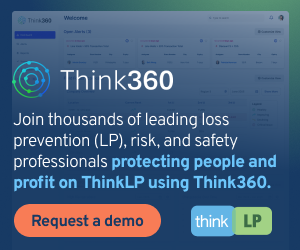news round-up
'Read my lips'
Boots’ Iona Blake on neurodiversity, hearing loss and fighting to be heard in the competitive world of loss prevention.
It was George H W Bush the Republican President from the 1990s who famously and emphatically introduced the phrase ‘read my lips’ to the popular lexicon of language when making a pledge on not raising taxes in such a way that everyone would understand.
He was of course making an unequivocal point that anyone affected by hearing loss – and there are 1.5 billion people globally who experience it – knows all too well and that is the ability and concentration required to lip read makes for a level of true understanding because those impacted have to work harder to be heard, particularly in any social or work interaction.
Hearing loss, whether congenital or acquired through Tinnitus or an infection, for example, is one of the hidden neurodivergent conditions that make up four per cent of all disabilities. It can lead to communication challenges and misunderstandings, telephone difficulties and awkward interpersonal interactions such as asking people to speak up or repeat something they have already said.
Hearing loss, in the experience of Iona Blake, security and incident manager at Boots, does not define a person or necessarily hold them back, but conversely can push them forward, as anyone who has worked with her can vouch for.
“It has made me more resilient – I have had to be, and I am not afraid to fight to be heard,” said Iona, who has worked for Boots for 15 years, half of which have been in her current role.
A former chair of the BRC’s Heads of Security and the 2022 winner of the Women in Security Awards, Iona is a high-flyer in the competitive world of risk as well as a champion for neurodiversity in business.
But she has had to fight to be heard throughout her younger and earlier adult life. Born with bi-lateral, high frequency hearing loss that was diagnosed at the age of four, she was recognised as a bright child, albeit very loud in social situations. The condition manifested itself along with a speech impediment and the young Iona was sent for elocution lessons at a young age, a brutalist experience where incorrect pronunciation was met with both the threat and follow through of the cane.
Bullied at school, she ditched her hearing aids at the age of 12 and was moved down the capability levels because group comprehension became more challenging. She was also viewed by teaching staff as ‘difficult’ for being loud.
“I was seen as bossy and loud because I could not hear myself – it was a very lonely time for me,” she said.
“I had a lisp and struggled with high-frequency sounds like the letter ‘t’ or ‘f’ and because of everything I did miss out at school,” said Iona who now vicariously channels every day workable solutions for those concerns through to her daughters who have both been diagnosed with the same condition and now both wear hearing aids.
Now, in her adult and professional life, she simply ‘gets on with it’ but makes use of the various support networks available such as subtitles on television programmes or ‘live captions’ on Teams calls.
She is open about her condition and askes people not to cover their mouths when speaking to her. She does experience ‘listening fatigue’, particularly when suffering with colds and congestion and in the office environment is also careful not to sit close to working air-conditioning units which emit noise vibration.
“I am passionate about diversity and belonging – not feeling that you have to remove yourself from something because of a personal situation that people can’t see. I’m not afraid to call it out when I see anything resembling bullying or situations that can trigger exclusion or isolation, particularly when working in a team.”
Her experience at school and involvement with dance – both daughters are award-winning contemporary dancers – has shown her that pushing to the front to hear what is being said and avoid background noise, is a way of getting on for people with hearing loss.
“It has become more of a thing for me post-pandemic and the acceptance of allowing people to understand your vulnerability.
“It makes me different, but it makes me work harder and I am an ‘A-grade’ lip reader. I have encouraged the use of subtitles on every device and I’m always aware of acoustics in meeting rooms.
“Don’t be afraid to start the conversation and think about how you can adjust,” said Iona who has also pledged to re-visit the use of hearing aids before she is 50 despite abandoning them in her pre-teens.
Read my lips would today be converted into an inspirational internet meme, but so would ‘don’t cover your mouth’ or ‘work harder to be heard’ not to mention get ahead, as Iona is living testament to. Working people who live with hearing loss must know that despite their hidden condition they belong and must be heard along with everyone else – they are not only part of the conversation but truly included in the wider discussion around acceptance and adaptation.






